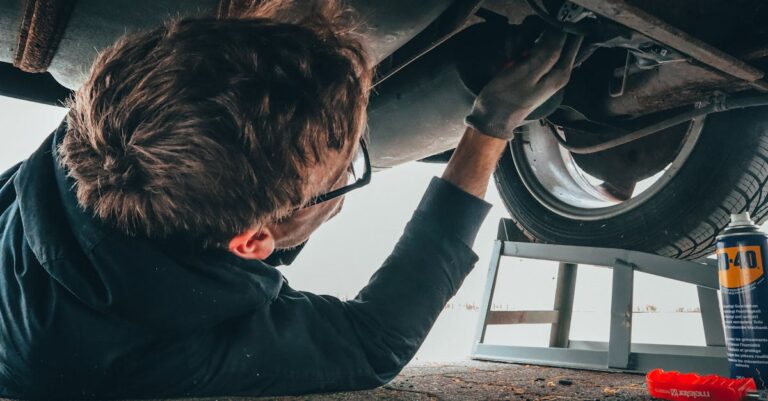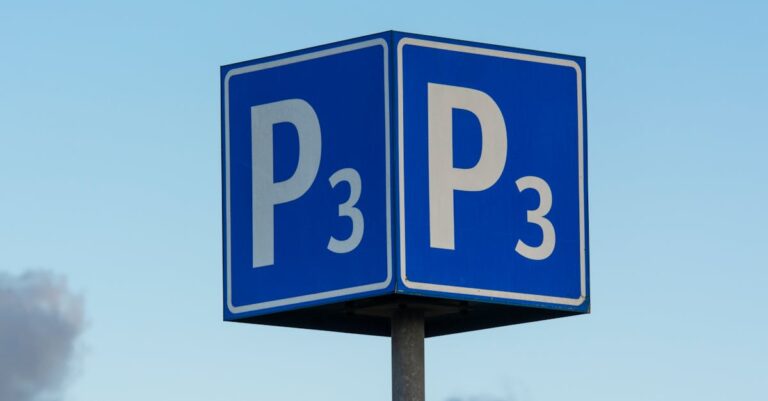Table Of Content
- Car Modifications That Actually Add Value (And Which Ones to Avoid)
- Understanding Value: What Buyers Really Want
- Smart Modifications That Boost Your Car’s Worth
- Modifications That Often Decrease Value (Buyer Beware!)
- The Importance of Quality and Documentation
- Conclusion: Modifying Smarter, Not Harder
- Frequently Asked Questions (FAQs)
- FAQ 1: Will adding a turbo kit increase my car’s value?
- FAQ 2: Is it worth restoring classic car parts vs. using modern upgrades?
- FAQ 3: Does regular maintenance count as a value adding modification?
- FAQ 4: How much value can good tires add?
- FAQ 5: Should I remove modifications before selling my car?
Car Modifications That Actually Add Value (And Which Ones to Avoid)
So, you love your car, right? And maybe you’ve been thinking about tweaking it a bit. Adding some personal flair, boosting performance, or just making it… better. We all get that itch! But here’s the million dollar question (or maybe the few thousand dollar question): will those cool mods you’re dreaming of actually add value when it’s time to sell, or will they send potential buyers running for the hills?
It’s a tricky balance. On one hand, personalization is awesome. On the other, what you think is the bee’s knees might be a total turn off for someone else. The world of car modifications is vast and varied, ranging from subtle enhancements to radical transformations. The key isn’t just *if* you modify, but *how* and *what* you modify. Let’s dive into the modifications that can genuinely put some extra cash in your pocket come resale time, and which ones you might want to steer clear of if value is a top priority.
Understanding Value: What Buyers Really Want
Before we even talk specific parts, let’s get our heads around what “value” means in the used car market. It’s not just about the cost of the parts you bolted on. Far from it! Value is determined by desirability, reliability, usability, and how well your car fits the needs and wants of the *next* owner.
The Resale Value Equation: More Than Just Parts
Think about it like renovating a house. You could install solid gold faucets, but will you recoup that cost when you sell? Probably not. Most buyers just want clean, functional, modern fixtures. Similarly, dropping $10,000 on a high end sound system with massive subwoofers might be your dream, but the average buyer might prefer a clean, stock interior or a modest, well integrated system.
The value equation considers:
- Broad Appeal: Does the modification appeal to a wide range of potential buyers?
- Quality of Work: Was it installed professionally? Shoddy work screams “headache” to buyers.
- Functionality & Reliability: Does the mod improve the car’s function without compromising its reliability?
- Legality & Insurability: Are the modifications street legal and insurable?
- Maintenance History: Can you prove the car, including its modified parts, has been well maintained?
Spending money on mods doesn’t automatically translate into a higher selling price. Often, you’ll only recoup a fraction of the cost, if any. The goal with value adding mods is to make your car *more desirable* than a comparable stock vehicle, justifying a slightly higher price or making it sell faster.
Subjectivity vs. Objectivity in Car Mods
Here’s where things get fuzzy. Some modifications have objectively measurable benefits. Better brakes improve stopping distance. A backup camera enhances safety. These are harder to argue against.
Then there’s the subjective stuff – primarily aesthetics. That lime green paint job? The massive rear wing? Those underbody neon lights? While you might adore them, they drastically narrow your pool of potential buyers. Taste is personal. Modifications that are too “loud” or niche often detract from value because the next owner knows they’ll either have to live with something they dislike or spend money to undo it.
The sweet spot often lies in modifications that offer objective improvements or subjective enhancements with broad appeal – think “OEM plus” (like it could have come from the factory, but slightly better) rather than “Fast and Furious Tokyo Drift.”
Smart Modifications That Boost Your Car’s Worth
Alright, let’s get to the good stuff. What upgrades can actually make your car more appealing and potentially command a better price? We’re looking for mods that enhance performance responsibly, improve looks tastefully, or add genuinely useful features.
Performance Upgrades That Pay Off
Be careful here. Extreme performance mods often scare buyers away (more on that later). But subtle, well executed performance enhancements can be a plus, especially on cars known for being sporty or tunable.
Engine Tuning (Subtle & Reliable)
We’re not talking about pushing the engine to its absolute limit. A conservative, professional ECU tune (engine control unit remap) can unlock a bit more horsepower and torque, improve throttle response, and sometimes even enhance fuel economy. The key words are professional and conservative. If you can provide documentation from a reputable tuner showing modest, reliable gains, it can be a selling point for enthusiasts looking for a car that’s already been “woken up” a little, without the risks of overly aggressive tuning.
Upgraded Suspension Systems
Swapping out tired, factory suspension for a quality aftermarket setup (think Bilstein, Koni, Eibach) can improve handling, provide a slightly lower stance (which many find aesthetically pleasing), and give the car a more planted feel. Again, avoid slamming the car to the ground with cheap coilovers. A modest drop with high quality components that improve both looks and performance without sacrificing too much ride comfort is the goal. This shows an owner cared about the driving dynamics.
Better Brakes: Safety Sells
This is almost always a win. Upgrading brake pads, rotors, or even calipers (like Brembo) not only improves stopping power – a crucial safety feature – but also signals that the owner invested in quality components. Good brakes inspire confidence, and that’s valuable to any buyer. Just ensure they are installed correctly and fit properly behind the wheels.
Aesthetic Enhancements Buyers Appreciate
Making your car look better is a common goal, but remember – taste is subjective. Stick to mods that offer a clean, upscale, or subtly sporty look.
Quality Wheel and Tire Packages
This is arguably one of the most impactful aesthetic mods that can add value. A set of high quality, well chosen aftermarket wheels (or even upgraded OEM wheels from a higher trim level) can dramatically improve a car’s appearance. Stick to reputable brands and sizes that are appropriate for the vehicle. Avoid overly large, heavy, or garishly colored wheels. Pairing them with good quality tires with plenty of tread life is crucial. Worn out tires on fancy wheels just looks négligent.
Professional Paint Jobs & Wraps (Tasteful Choices)
A fresh coat of paint in the original color or a similar, popular factory color can definitely boost value, especially if the original paint was faded, scratched, or damaged. Quality is paramount – a cheap paint job looks worse than old, original paint. Professional vinyl wraps in tasteful colors or finishes (like satin grey or deep metallic blue) can also add value, offering a custom look while protecting the original paint underneath. Avoid loud, trendy colors or complex graphics unless you’re selling to a very specific niche.
Subtle Body Kits (OEM+ Style)
Forget massive wings and ill fitting fiberglass monstrosities. Subtle enhancements like a front lip spoiler, side skirt extensions, or a small rear diffuser, especially those made from quality materials (like polyurethane or carbon fiber) that mimic the style of higher performance factory models (the “OEM+” look), can enhance the car’s lines without being offensive. Fit and finish must be perfect.
Practical & Tech Additions
In today’s world, buyers expect certain conveniences and tech features. Adding these thoughtfully can make an older car feel more modern and desirable.
Updated Infotainment Systems (Apple CarPlay/Android Auto)
Swapping an outdated factory radio for a modern touchscreen head unit with Apple CarPlay and Android Auto is a HUGE plus for many buyers. It instantly modernizes the interior and adds navigation, streaming music, and hands free calling capabilities people rely on daily. Ensure the installation is clean and integrates well with the dashboard.
Backup Cameras & Parking Sensors
Safety features are always attractive. Adding a backup camera (often integrated with an aftermarket head unit) or parking sensors (either aftermarket kits or sometimes retrofitted OEM parts) makes parking easier and safer. This is particularly valuable on larger vehicles or those with poor rear visibility.
Quality Window Tinting
Professionally installed window tint offers several benefits: it reduces glare, keeps the interior cooler, protects upholstery from UV damage, and adds privacy. Stick to legal tint levels (check your local regulations!) and choose a quality film that won’t bubble or turn purple. It’s a practical upgrade many buyers appreciate.
Interior Comfort & Quality of Life Mods
Mods that make the driving experience more pleasant can also add subtle value.
Upgraded Seat Covers or Reupholstery
If your car’s seats are torn, stained, or worn, addressing this can make a big difference. High quality, well fitting seat covers (like Katzkin leather) can refresh the interior. Even better, professional reupholstery in a durable material can significantly lift the perceived quality and value, especially if the original seats were cloth and you upgrade to leather (or a quality synthetic).
Sound System Improvements (Balanced, Not Booming)
While massive subwoofers are usually a turn off, a modest upgrade focused on sound *quality* can be appreciated. Replacing factory speakers with better quality units, adding a small amplifier for cleaner power, or installing a modest, hidden subwoofer for balanced bass can enhance the listening experience without sacrificing trunk space or screaming “look at me.” The key is integration and balance, not sheer volume.
Modifications That Often Decrease Value (Buyer Beware!)
Now for the flip side. Just as some mods can help, others can actively harm your car’s resale value. These are often the mods that are too extreme, too personal, poorly executed, or suggest the car has been driven hard or abused.
Extreme Performance Mods
Big turbos, aggressive engine internals, nitrous oxide systems – these things scream “driven hard and potentially unreliable” to most buyers. While they might appeal to a tiny niche market, the average person sees them as a red flag indicating potential future repair bills and difficulty insuring the vehicle. Unless you’re selling a dedicated track car, major performance mods usually hurt value significantly.
Loud Exhaust Systems
Sure, a nice burble can be pleasant, but excessively loud “drone master” exhausts are obnoxious to most people. They attract unwanted attention, can be tiring on long drives, and may even violate noise ordinances. A potential buyer often factors in the cost and hassle of replacing a loud exhaust with something more socially acceptable.
Over-the-Top Aesthetics (Wild Colors, Huge Spoilers)
This goes back to subjectivity. Neon paint, massive spoilers (especially non functional ones), scissor doors, excessive decals, huge chrome wheels, slammed suspension that scrapes on driveways – these mods drastically shrink your buyer pool. They often look cheap or suggest questionable taste to the mainstream market.
DIY Disasters & Poor Workmanship
Nothing tanks value faster than modifications that were clearly done poorly. Bad wiring jobs (a fire hazard!), ill fitting body panels, sloppy paint, suspension installed incorrectly – these are major red flags. Buyers see poor workmanship in one area and assume the rest of the car might be hiding similar problems. If you’re going to modify, get it done professionally or be absolutely certain you know what you’re doing.
The Importance of Quality and Documentation
Regardless of the modification, two things are crucial for adding value: quality and documentation.
Quality: Use parts from reputable brands. Cheap, knock off parts often fail prematurely, fit poorly, or perform worse than stock. Buyers recognize quality brands and appreciate the investment.
Documentation: Keep receipts for parts and, more importantly, labor if professionally installed. If you had the engine tuned, keep the dyno sheet. If you upgraded the suspension, keep the alignment report. This proves what was done, who did it, and that quality parts were used. It builds trust and justifies your asking price.
Think of it like a service history, but for modifications. A well documented, tastefully modified car is far more appealing than one with mystery mods of unknown origin or quality.
Conclusion: Modifying Smarter, Not Harder
Modifying your car can be incredibly rewarding, allowing you to tailor it to your exact tastes and needs. But when it comes to resale value, not all mods are created equal. The smartest approach is to focus on modifications that offer broad appeal, enhance functionality or safety, improve aesthetics tastefully, and are executed with high quality parts and professional installation.
Think like a potential buyer. Would this modification make the car more reliable, more comfortable, safer, better looking (to the average person), or more convenient? If the answer is yes, and the work is done well, you might be adding real value. If the mod is overly personal, extreme, or poorly done, you’re likely better off saving your money or being prepared to take a hit on the resale price.
Ultimately, modify your car for your own enjoyment first and foremost. But if preserving or even enhancing its value is a consideration, choose your upgrades wisely. Keep it clean, keep it quality, keep the receipts, and you’ll be in a much better position when it’s time to pass the keys to the next owner.
Frequently Asked Questions (FAQs)
FAQ 1: Will adding a turbo kit increase my car’s value?
Generally, no. While it significantly increases performance, adding a turbo kit (or supercharger) to a naturally aspirated car introduces complexity and raises concerns about engine longevity and reliability for most buyers. It also drastically narrows the market to specific enthusiasts. Unless it’s a professionally built, well documented setup on a car model where forced induction is common and expected, it’s more likely to decrease mainstream resale value.
FAQ 2: Is it worth restoring classic car parts vs. using modern upgrades?
For classic cars, originality often commands the highest value. Restoring original components, even if challenging, is usually preferred by collectors over replacing them with modern parts (unless they are discreet “restomods” focusing on reliability, like electronic ignition or better brakes hidden behind original wheels). For non classic, regular used cars, modern upgrades (like infotainment) are generally more valuable than restoring outdated original parts.
FAQ 3: Does regular maintenance count as a value adding modification?
While not technically a “modification,” a documented history of meticulous regular maintenance is *hugely* valuable. It doesn’t necessarily add thousands to the price like a rare option might, but it makes the car far more desirable and easier to sell at a fair market price compared to a similar car with a spotty history. Buyers pay for peace of mind, and good maintenance provides that. So yes, in a way, it adds significant perceived value.
FAQ 4: How much value can good tires add?
New or nearly new tires from a reputable brand can add significant perceived value. Buyers see tires as an immediate upcoming expense. If your car has tires with plenty of tread life, the buyer knows they won’t have to spend $500 $1000+ right after purchase. While you won’t recoup the full cost of the tires, it makes your car “ready to go” and justifies a higher asking price compared to an identical car needing new rubber. It removes a barrier to purchase.
FAQ 5: Should I remove modifications before selling my car?
It depends heavily on the modification. If you have tasteful, value adding mods (like quality wheels, updated head unit, professional tint), leave them on and highlight them (with documentation!). If you have extreme or highly personal mods (loud exhaust, slammed suspension, wild wrap, huge stereo system), you might get more value by returning the car to stock (if possible) and selling the aftermarket parts separately. A clean, near stock car is often easier to sell than one with controversial modifications.









